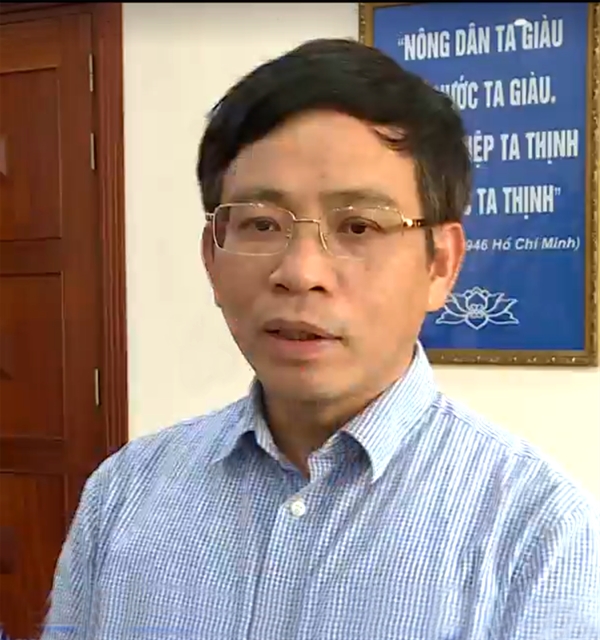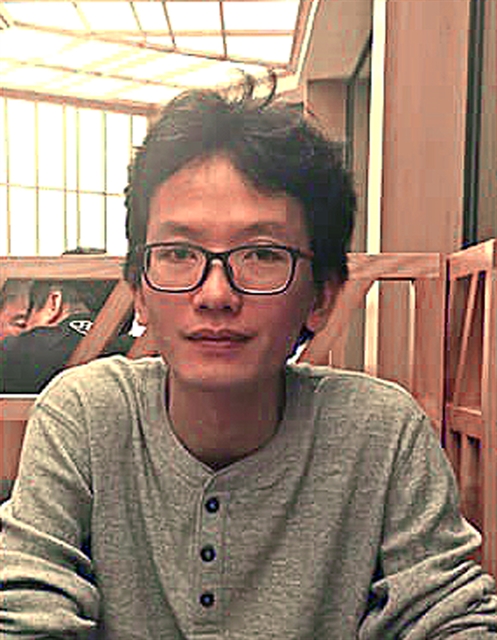The COVID-19 pandemic greatly impacted global and national production chains, forcing domestic enterprises to find new markets and develop new products.
The COVID-19 pandemic greatly impacted global and national production chains, forcing domestic enterprises to find new markets and develop new products.
Some heads of domestic enterprises spoke to the Vietnam News Agency about difficulties in operation as well as solutions to restore production and business.

Ninh Thi Ty, chairwoman of Ho Guom Group Joint Stock Company
The COVID-19 outbreak has changed all business plans and goals of Ho Guom Group.
The company has faced difficulties in having export orders now and the future. For the long term, it is difficult to predict the development of production and business because the pandemic remains complicated.
In March and April, we had some solutions to reduce those difficulties, including a decrease in working hours, wages and all kinds of expenditures.
In addition, returning to the domestic market was a choice of many businesses in the textile and garment industry, including Ho Guom Garment, Ho Guom Group’s subsidiary. However, a strong reduction in domestic market demand due to the pandemic has created many challenges for them.
A mask production line producing tens of thousands of units per day could bring jobs for 50,000 workers. My company still lacks jobs for tens of thousands of other workers.
The difficulties are expected to stay this month and next month because export orders have continued to reduce.

Vu Hai Bang, CEO of the Woodsland Joint Stock Company
During the COVID-19 pandemic, the wood processing industry in general and my company, in particular, have had difficulties because export orders were suddenly cancelled, especially from the US and EU markets. A few markets have maintained a small number of export orders.
In the early pandemic period, my company almost stopped production. We produced only a few products that could still be exported such as wooden furniture to the US, Canada and Japan.
Meanwhile, we had to store products that could not export under signed contracts due to the pandemic. However, our warehouses could not keep all products and this inventory would create financial difficulties.
At present, the company is trying to restore 50-60 per cent of its production capacity, but there have been few export orders, especially from key export markets such as the EU and the US.
The recovery of production in the domestic wood processing industry and Woodsland Joint Stock Company in particular mainly depends on customer orders.
The production and business situation in the second quarter may not be much changed. Enterprises expect this situation to be better in the third quarter.
But if the existing difficulties last a few more months, enterprises would struggle to maintain their operation.

Cao Huu Hieu, deputy general director of Viet Nam National Textile and Garment Group (Vinatex)
The interruption of the global supply chain due to the pandemic has led domestic businesses to not be able to optimise production efficiency and cut costs. However, the biggest challenge for domestic and global textile enterprises is that cash flow is stopping, threatening the existence of enterprises.
To cope with this, Vinatex has directed its member companies to switch to manufacturing antibacterial cloth masks due to the reduction in orders of traditional products. The production of masks has helped the group create jobs for 20 per cent of its workers.
The group is also promoting exports of three-layer antibacterial cloth masks meeting Ministry of Health standards to countries such as the Czech Republic, Hungary, Canada and the US.
However, this is only a solution for helping the group maintain jobs for workers. The masks can not be considered a strategic product because mask demand is not regular.
At the same time, Vinatex has focused on implementing not-cancelled export orders and finding production contracts in the domestic market.
The group has also recommended the Government support textile and garment enterprises, including exemption or reduction of social insurance, trade union fees, corporate income tax, value-added tax and land rent as well as the extension of tax and fee payment deadlines.
The group has asked banks to extend payment deadlines for long-term loans and increase the term of working capital loans as well as reduce the interest rate of loans.

Nguyen Quang Vinh, CEO of the Vision Materials Viet Nam Company Limited
The pandemic has interrupted raw material supply while countries and territories have also stopped importing goods due to social distancing and lockdowns. Therefore, domestic mechanical manufacturers have cut 80 per cent of orders. That has made their revenue also reduce by more than 80 per cent.
The pandemic situation in the world is still complicated. The UK market continues to close until the end of May while the Japanese and domestic markets are showing signs of recovering.
To support domestic businesses, the Government has had many solutions in taxes, fees and preferential loans. However, most of them are difficult to access and there is a lack of information and guidance.
At present, Viet Nam is controlling the pandemic, creating chances for local enterprises to restore their normal operation. So, small- and medium-sized enterprises like Vision Materials Viet Nam can expect banks to create more good conditions for them to take loans.
Financial leasing companies have simplified conditions for local enterprises in getting loans though they have higher interest rates than banking loans.
Meanwhile, Vision Materials Viet Nam continues to find new markets besides traditional markets like the UK, Japan and the domestic market. We are boosting trade promotion programmes and working with partners to sign new contracts. We are also diversifying input material sources besides aluminium.
In addition, the company will also build an electrostatic paint plant to improve its competitiveness and expand production scale for meeting market demand in the future. — VNS
- Tags
- COVID-19 pandemic
- national production chains
- Ninh Thi Ty
- chairwoman of Ho Guom Group Joint Stock Company
- Nguyen Quang Vinh
- CEO of the Vision Materials Viet Nam Company Limited
- Cao Huu Hieu
- deputy general director of Viet Nam National Textile and Garment Group (Vinatex)
- Vu Hai Bang
- CEO of the Woodsland JSC





